Supporting caregiver burnout through a tailored care risk management platform.
TCARE
Role: Led product, defined features and designed user interface and experience. Worked with in-house and off-shore engineering teams.
Skills Used: UX Design, Journey Mapping, Product Management
About 1 in 5 adults report providing care to a family member or friend.
Informal caregivers assist with activities of daily living and medical tasks for the care receiver. The transition from a family member to caregiver fundamentally reshapes identity, which leads to what's called "caregiver burnout."
[National Alliance for Caregiving and AARP. (2015). Caregiving in the U.S.]
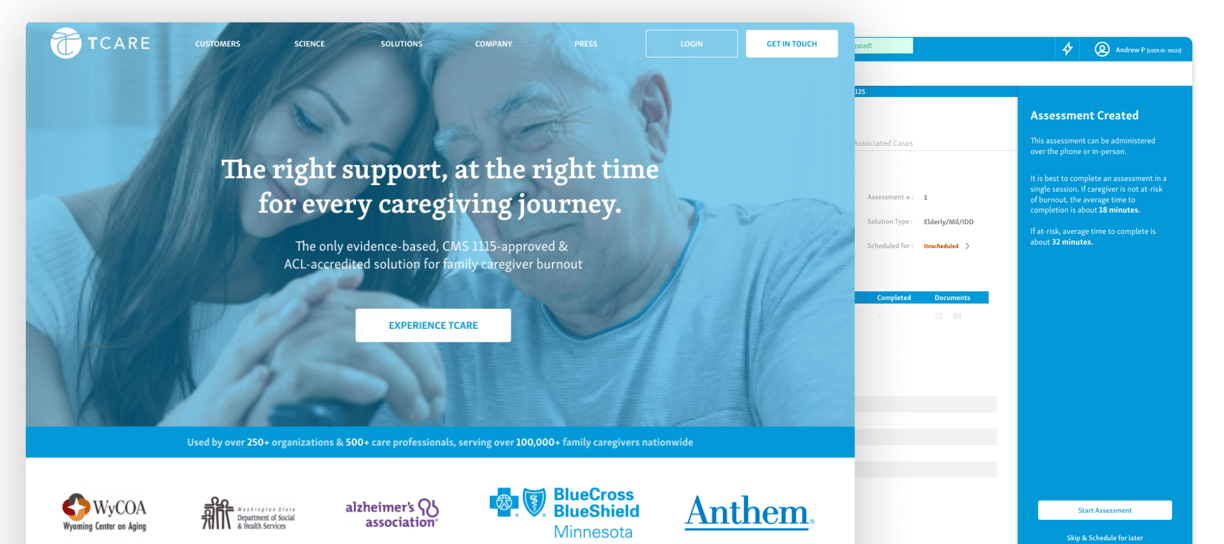

The TCARE® Personal Caregiver Survey assesses burden and stress experienced by caregivers.
Delivered over the phone by a caregiving specialist, this protocol is used to assess over 90+ burnout factors and provide individualized care plans.
Questions in the assessment explored specific evidence-based scores that influenced stress measured as "intention to place care receiver in a facility." These scores include: identity discrepancy, relationship burden, objective burden, stress burden, uplifts and depression.


First, we spoke to case managers who had been using the paper-version to help guide our product design decisions.
"When I come into work, I often times don't know where to start. Which cases need me to take action? When by?"
"I'd like to be able to have better contextual understanding of the caregiver before going into an assessment or follow-up."
"If we have to stop the assessment for any reason, my stomach turns, because we have to start this all over again next time."
"The biggest time spent is identifying the best resources for the care plan. Can this be made easier?"
We then mapped the user journey, using it as a critical artifact to define product features and inform design choices.
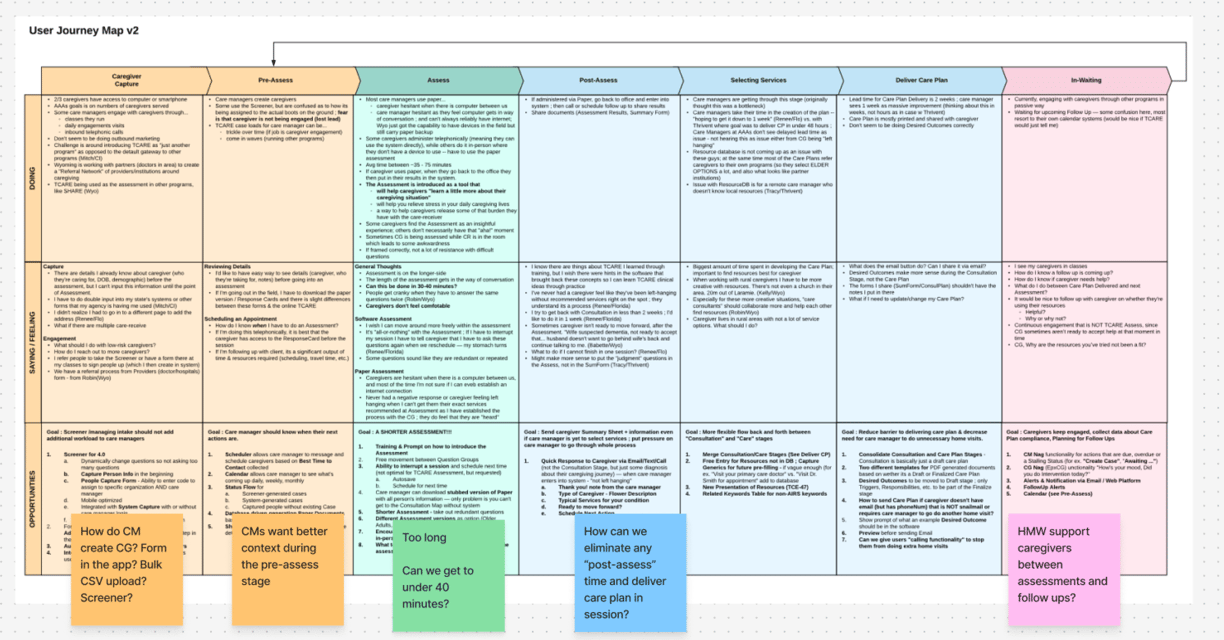

Finally we transformed the paper-based process, along with what we learned from our users, into a SaaS app in order to scale the delivery process
By digitizing assessment workflows, we reduced administrative tasks like form printing and manual scoring while cutting assessment time from 75-90 to 30-40 minutes. Key features included auto-save capabilities and flexible session scheduling, enabling care managers to complete evaluations more efficiently.
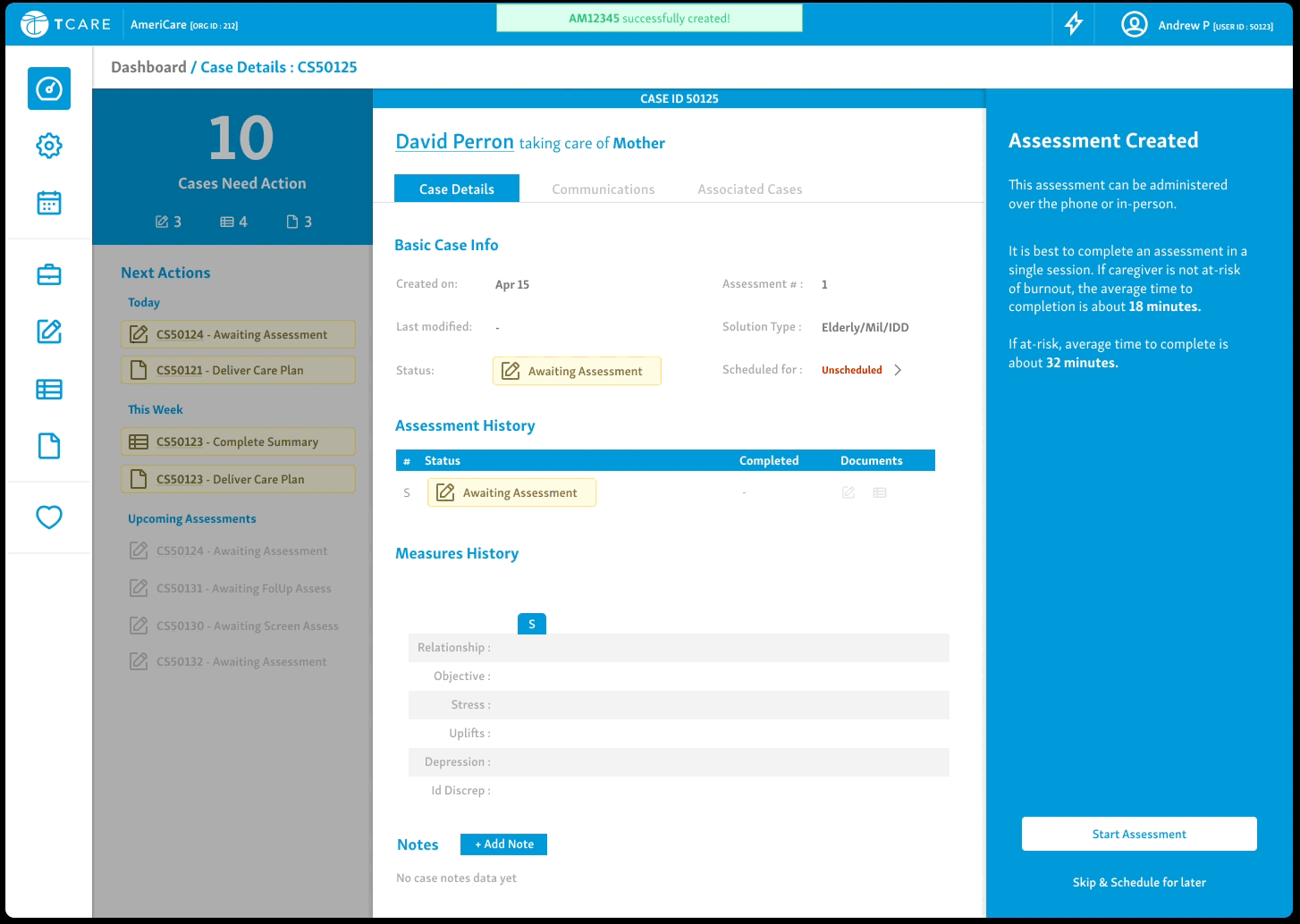

Case managers helped guide design decisions from major features to minute interactions...
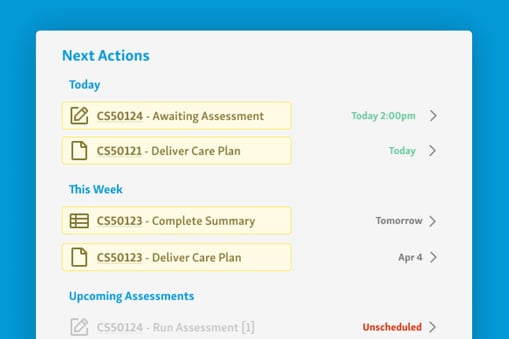

Quick overview of pending cases to prioritize daily workflow efficiently
An early software version only had the Assessment function. Based on user feedback, we expanded the platform to include a dashboard with actionable case lists and scheduling capabilities, addressing care managers' workflow needs.
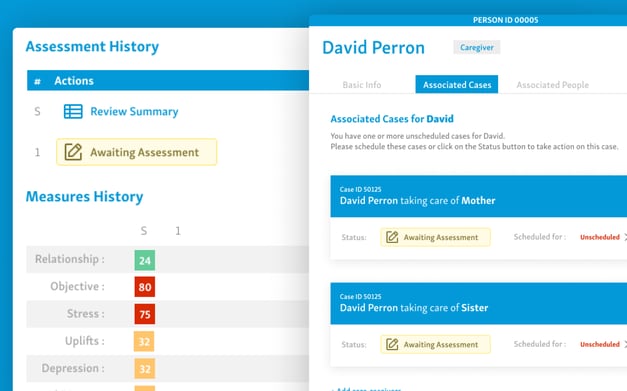

Contextual understanding of the caregiver to have better conversations
Two key data sets in the Caregiver Overview enabled case managers to gain deeper insights and context before client interactions, enhancing preparation and conversation quality.
Caregiver Score History: showing how the six burden scores that were assessed changed throughout follow-ups.
Caregiver Relationships: being able to link one caregiver to multiple care-receivers (i.e taking care of Mom AND Sister)
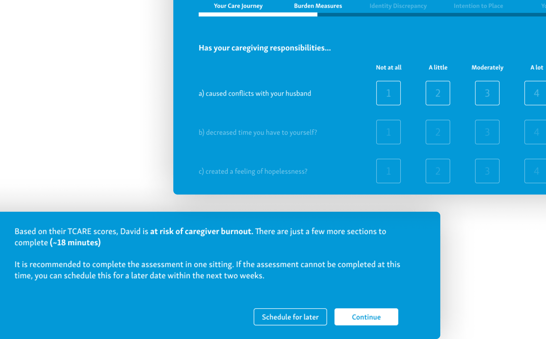

Reducing the assessment time and making it feel less cumbersome.
The assessment made it easier for case managers to answer questions quickly. They could use their number keys to rate each question, moving through the form smoothly. Understanding that not all assessments can be finished at once, the system lets managers save their work and complete it later.
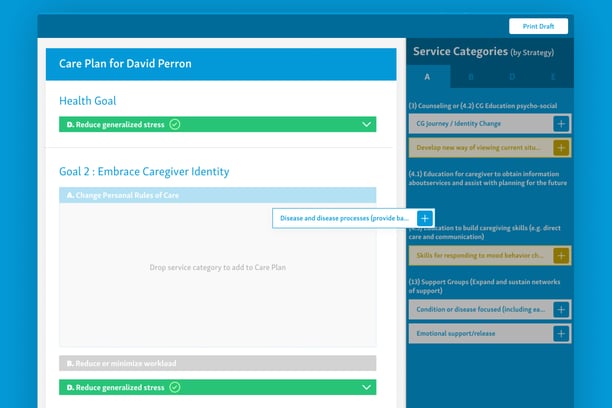

Simplifying and reducing time to create a care plan
Upon completion of the assessment, caregivers would generally get one of three goals — to embrace, to maintain or to move away from their caregiver identity. This along with general health goals would make up the care plan.
By digitizing and automating the calculation of scores, we improved accuracy and speed in which care plans can be created. By connecting to a resource database we make it easy for case managers to drag and drop the different strategies, resources and any notes needed to complete the care plan.
With a "right intervention, at the right time" approach, TCARE has made lasting impact on caregivers and families
84%
of TCARE supported caregivers report lower levels of depression
20%
Reduction in Home & Community Based and Long-Term Care Services utilization
21 mo
Average delay in Nursing Home / Assisted Living facility placement.
Crafted with ❤️ in St. Louis
© 2025 Andrew Pandji
All product names, trademarks and registered trademarks are the property of their respective owners. All company, product and service names used on this website are for identification purposes only. The use of these names, trademarks and brands does not imply endorsement.